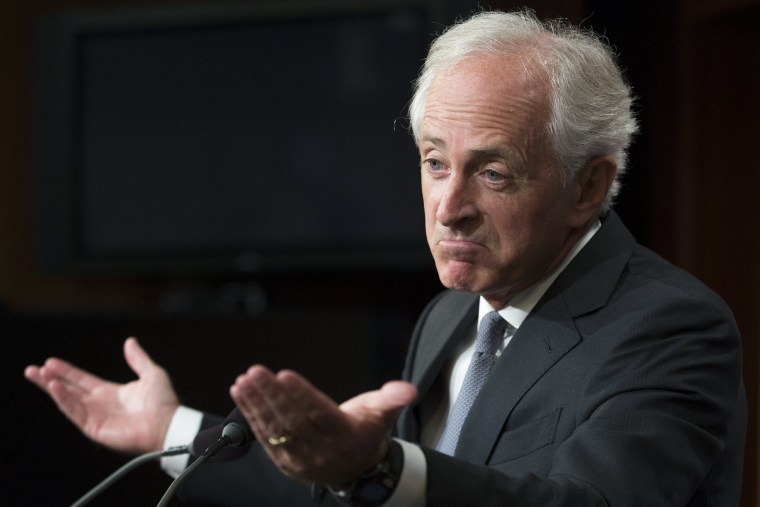Throughout 2017, ahead of contentious votes on the Senate floor, much of the political world focused its attention on the handful of Republicans who aren't always comfortable with their party's far-right orthodoxy. The GOP's health care gambit, for example, was derailed by Sens. Susan Collins (R-Maine), Lisa Murkowski (R-Alaska), and John McCain (R-Ariz.).
And so, as the party turned to tax cuts, it was tempting to once again assume that the plan's fate rested in the hands of the so-called "moderates" in the Senate Republican conference. To derail a bill, it takes at least three GOP senators to break ranks, and so there's been considerable interest in recent weeks in what Collins, Murkowski, and McCain were thinking.
But in this case, such an approach offers an incomplete view. Sens. Steve Daines (R-Mont.) and Ron Johnson (R-Wis.), for example, are demanding bigger tax breaks for pass-through businesses. Collins has concerns about the health care provisions. McCain still supports lawmaking through "regular order," which GOP leaders have so far ignored in their zeal to give tax breaks to the wealthy.
And then there are a handful of Senate Republicans -- including Bob Corker (R-Tenn.), Jeff Flake (R-Ariz.), and James Lankford (R-Okla.) -- who are hesitant to put trillions of dollars in tax cuts on the nation's credit card. As TPM reported, they even have a gimmick in mind.
Skeptical of the wild economic growth GOP leadership promises will make up for all the revenue lost in the legislation, the change they're seeking would create a "backstop" or "trigger" mechanism to undo some of the deepest tax cuts in the bill after several years if that magic economic growth doesn't materialize."That way you're in a situation where you're not creating deficits, should the projections laid out not be real," Sen. Bob Corker (R-TN) explained to reporters Monday night. "We've been working throughout the entire Thanksgiving break on it, working closely with the administration, and some members of the Finance Committee to design a trigger or a backstop -- in the event the revenues are not there, there's a way to recoup them."
There are all kinds of questions about the practicality of such a provision -- we don't yet have any idea when such "triggers" would be pulled or which tax breaks would be affected -- but Corker is working on it and Lankford appears sympathetic to the idea.
True to form, several other Senate Republicans are balking at this, saying they're comfortable believing that tax breaks for the wealthy and big corporations will simply pay for themselves, and triggers create unnecessary risks. Their allies, including the U.S. Chamber of Commerce, oppose the idea, too.
How will GOP leaders resolve this? No one has any idea, but with a scheduled vote on track for this week, Republicans have picked an odd time to consider a rewrite.
Other tidbits of note:
* The Senate Budget Committee is scheduled to vote on the tax plan as early as this afternoon, and some of the GOP skeptics serve on this committee. Republican leaders, however, have quietly indicated that the bill may come to the floor this week even if the Budget Committee balks.
* Keep an eye on Sen. Jerry Moran (R-Kan.), who told constituents over Thanksgiving weekend that he's "cognizant" of the fact that a similar tax plan failed spectacularly in his home state.
* GOP efforts to get Democratic votes for the regressive and partisan tax plan appear to be effectively dead. Sens. Joe Manchin (D-W.Va.), Heidi Heitkamp (D-N.D.), and Joe Donnelly (D-Ind.) -- three of Congress' most conservative Democrats -- all said today they can't support the current Senate tax plan.
* Sen. Rand Paul (R-Ky.) suggested a month ago that he was uncomfortable with the fact that his party's plan raised taxes on so many middle-class households. He apparently got over it: Paul endorsed the plan yesterday.
My best guess, for what it's worth, is that the GOP skeptics fold in the end and this thing passes, probably this week. When the nation has to hope that Republican deficit hawks are sincere about fiscal responsibility, recent history has taught us those hopes are in vain.
Watch this space.
